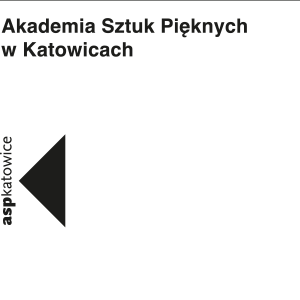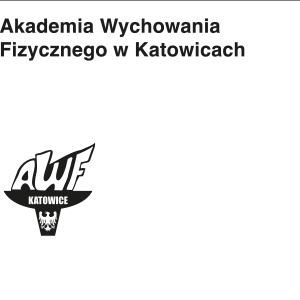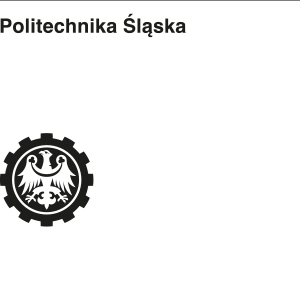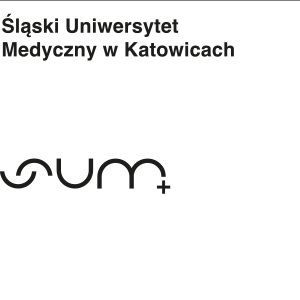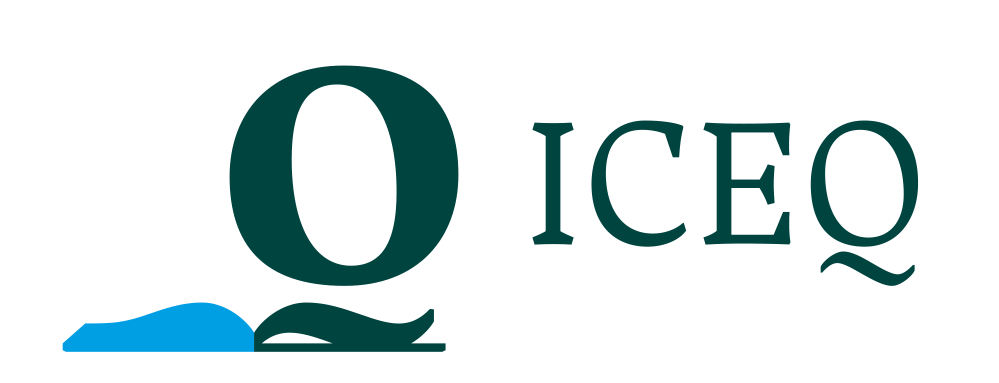
Accreditation as a key mechanism for monitoring the quality of education, requirements and current activities of the Polish Accreditation Committee and other prestigious Polish and foreign accreditation institutions, specificity of accreditation for individual types of studies (including e.g. arts, physical culture sciences, teacher training study programmes, etc.), accreditations in the context of rankings.
Locations:
University of Silesia in Katowice (UŚ),
Block 1
10.00 — 12.30
in-person event + streaming
University of Silesia in Katowice, Uniwersytecka 4, Faculty of Humanities, The A. Pawlikowski Lecture Hall [B.1.1].
You can follow the broadcast on the Katowice – Miasto Nauki [Katowice – City of Science] Facebook profile: https://www.facebook.com/Katowice2024/.
Link to the broadcast on YouTube: https://youtu.be/cGvIczRO27o
PANEL DISCUSSION, in-person event + streaming, open (limited by room capacity)
11.00-12.30 am,
University of Silesia in Katowice, Uniwersytecka 4, Faculty of Humanities, The A. Pawlikowski Lecture Hall [B.1.1].
↓
Participants: Dr hab. Maria Próchnicka: panel moderator, Dr Agnieszka Janiak-Jasińska, prof. dr hab. Zbigniew Marciniak, Dr hab. Beata Mikołajczyk, prof. dr hab. Łukasz Sułkowski, Mateusz Grochowski: President of the Students’ Parliament of the Republic of Poland, Mirosław Kiermaszek – Employers’ representative.
Organiser: The Jerzy Kukuczka Academy of Physical Education in Katowice, University of Silesia in Katowice.
You can follow the broadcast on the Katowice – Miasto Nauki [Katowice – City of Science] Facebook profile: https://www.facebook.com/Katowice2024/.
Link to the broadcast on YouTube: https://youtu.be/cGvIczRO27o
Block 2
13.30 — 15.00
PANEL DISCUSSION: in-person event, open (max. 40 participants)
Silesian Museum, Katowice, Dobrowolskiego 1, level -3, Education Room B
Organiser: UŚ Student Government
PANEL DISCUSSION: in-person event, open to all Congress participants (max. 110 participants)
Silesian Museum, Katowice, Dobrowolskiego 1, level -4, Education Room I
Chaired by Dr. hab. Rajmund Tomik (AWF)
Organiser: The Jerzy Kukuczka Academy of Physical Education in Katowice.
WORKSHOP: in-person event; registration required for the University’s partner high schools (2 groups of 25 participants)
University of Silesia in Katowice
PANEL DISCUSSION: in-person event, open to all Congress participants (max. 110 participants)
Silesian Museum, Katowice, Dobrowolskiego 1, level -4, Education Room H
Panellists:
Rector Ryszard Koziołek (the panel chair), Dr. Anna Budzanowska, Dr. hab. Maria Próchnicka, PKA Secretary; Rector Arkadiusz Mężyk, Head of CRASP; Professor Marcin Pałys, Head of RGSW, Professor Zbigniew Marciniak, Marcin Czaja, Director of DSW MEiN.
Five years after the adoption of the Act on Higher Education and Science (PSWN Act), it is clearly visible that scientific activity dominates, the results of which in the evaluation process allow for the obtaining a scientific category (on appropriately high categories depend, inter alia, the right to grant degrees, but also the right to establish new study programmes). While the results of the evaluation of the quality of scientific activity influence the teaching activity of higher education institutions, such a reverse relationship has been observed very rarely.
The pragmatics of a higher education institution’s activity shows that the group of academic teachers conducting only teaching activity is being limited; the rational action of university authorities is to favour those employees who combine teaching and research activity, and thus the results of their research activity are taken into account in the evaluation process.
Since the discussion at the National Science Congress, methods for valuing teaching professionals have not been developed. The Minister’s programmes such as Champions of Didactics ( https://www.gov.pl/web/edukacja-i-nauka/informacje-o-programie-mistrzowie-dydaktyki) are merely an attempt to recognize the problem and systemic solutions are lacking.
In the context of the teaching activity of universities, there have also been ideas put forward that contradict the accepted principles of the 2018 reform.
Proposed discussion points include:
Organiser: University of Silesia in Katowice
Block 2 and 3
13.30 — 17.00
(panel wykładowy)
LECTURE PANEL: in-person event, open to all Congress participants (max. 90 participants)
Silesian Museum, Katowice, Dobrowolskiego 1, level -3, Education Room C
Organiser: University of Silesia in Katowice
13.30 – 15.30: Panel chaired by prof. dr hab Ewa Jarosz
1) Roderick Vassallo: WE ARE! Diversity, Equality, Inclusion and Support at the University of Malta Junior College.
Mr Roderick Vassallo, Vice-Principal at the University of Malta Junior College will present the processes involved in the setting up and the running of structures and services at Junior College to promote and support diversity, equality and inclusion. The presentation will explore the structure and functioning of the Student Wellbeing & Support Committee and the Diversity Committee.
2) Dr. Agnieszka Bielska-Brodziak, Professor of UŚ: Equality and Diversity as Values in the Academic World
3) Summary. Dr. Magdalena Półtorak: Can Gender Equality Plans Change Academic Reality?
15.30 – 17.00: Panel chaired by Dr. hab. Agnieszka Bielska–Brodziak, Professor of UŚ
1) Universal Design – Works of Students of the Illustration and Information Studio (common directions – challenges, good practices)
Lecturers from the Academy of Fine Arts in Katowice: Dr. hab. Justyna Lauer, Professor of the Academy of Fine Arts (Dean of the Design Faculty), Dr. Anna Machwic (Vice-Rector for Cultural Activities and Promotion, Dean of the Faculty of Design in 2012-2016)
2) Art, Science and Therapy: The Coexistence of Disciplines in the Service of Uncommon people (Art Therapy – first degree studies)
Speakers:
Prof. dr. hab. Jolanta Jastrząb – Academy of Fine Arts Katowice (the Head of the Department of Painting in 2012-2016 and 2016-2020, the Head of Community Doctoral Studies)
Prof. dr. hab. Katarzyna Krasoń – UŚ (PKA expert since 2010, Director of the Institute of Pedagogy at the University of Silesia in 2007-2012, Vice-Dean for Science of the Faculty of Pedagogy and Psychology at the University of Silesia in the 2012-2016 and 2016-2019 , Honorary Member and Expert of the Association of Polish Art Therapists “Kajros”, Member of the Elementary Education Section of KNP PAN in 2020 – 2023 , Member of the Art Pedagogy Section of KNP PAN in 2020 – 2023.

*Lectures funded by European Funds from the project “DUO – University of Silesia as an accessible, universal and open university”, as part of the Operational Programme Knowledge Education Development 2014-2020
Block 3
15.30 — 17.00
PANEL DISCUSSION: in-person event, open to all Congress participants (max. 90 participants)
Silesian Museum, Katowice, Dobrowolskiego 1, level -3, Education Room A
During the debate, representatives of higher education institutions will discuss opportunities and challenges in the area of education quality related to the processes of obtaining international accreditation. Representatives of medical, technical and business universities will share their experience. Topics to be discussed include the implementation of international standards; particularly in the area of education outcomes and increasing the attractiveness and competitiveness of universities and their programmes by means of international accreditations.
Moderator: Edyta Lachowicz-Santos (UE Katowice)
Panellists: prof. dr hab. n. med. and n. o zdr. Tomasz Francuz (Medical University of Silesia), Dr. hab. n. o zdr. Piotr Romaniuk, Professor of SUM, Dr. hab. Monika Sulimowska-Formowicz, Professor of University of Economics), Magdalena Kudewicz-Kiełtyka (Silesian University of Technology).
Organiser: University of Economics in Katowice
DISCUSSION PANEL: in-person event, open to all Congress participants (max. 110 persons)
Silesian Museum, Katowice, ul. Dobrowolskiego 1, level -4, Education Room H
ORGANISERS: University of Silesia, FRSE
Paweł Poszytek, FRSE
Guests:
Topic: The idea of the EUI in the European educational area, determinants of the national system and challenges of the European agenda, support programmes, recognition models, the EUI as innovative education.
LECTURE/PANEL DISCUSSION; hybrid event; open to all Congress participants (max. 110 participants)
Silesian Museum, Katowice, Dobrowolskiego 1, level -4, Education Room I
Panel discussion: How to Teach Creativity? Quality of Education of Young Scientists in Terms of Work in the Innovative Economy Sector
Held by: mgr inż. Zuzanna Hazubska – Politechnika Wrocławska, Predict Systems Sp. z o.o.
Speakers:
mgr inż. Jarosław Olszewski – Przewodniczący Krajowej Reprezentacji Doktorantów
Dawid Solak Deputy Director General of the Foundation for the Development of the Education System
Dr. hab. Justyna Kucharczyk, Professor of the Academy of Fine Arts and Vice-rector for research and cooperation at the Academy of Fine Arts
Dr. Andrzej Kurkiewicz Plenipotentiary of the President for Research and Development, Central Office of Weights and Measures
Bartosz Stawiarz – Director of the Office for Cooperation with Regions, Foundation for the Development of the Education System, National Agency of the Erasmus+ Program
Dr. inż. Kinga Kurowska-Wilczyńska Foundation for Young Science
Adam Świtalski – EVIP Centrum Sp. z o.o
Lecture: Work&Science in Numbers: Summary of the Job Fair for Young Scientists.
Speakers: Arkadiusz Czarnecki–Gridaly, Jarosław Olszewski
Link to the broadcast on Youtube: https://www.youtube.com/watch?v=6jk-5OMw9K0
Block 4
17.30 — 19.00
PANEL DISCUSSION, open to all Congress participants (max. 200 participants) + streaming
Silesian Museum, Katowice, Dobrowolskiego 1, level -4, Auditorium
You can follow the broadcast on the Katowice – Miasto Nauki [Katowice – City of Science] Facebook profile: https://www.facebook.com/Katowice2024/.
Link to the broadcast on YouTube: https://youtu.be/W1_hbNdOq0s
The title of the presented works of the Department of New Media at the Academy of Fine Arts in Katowice refers to the concepts of the Canadian media theorist and researcher Marshall McLuhan, who was a visionary and predicted the development of technology in the coming decades. The concepts he incorporated in such works as “The Medium Is the Message” and “Understanding Media: the Extensions on Man,” accurately predicted the processes that govern the modern world. One of the concept takes form of the meta-cultural statement that the world we create around us depends on the means by which we transmit information. Hence, it is extremely important that in the process of creating works as well as in education, students should have an awareness of the purposefulness of the means used.
One of the essential distinguishing features of new-media and interactive works is time. The English name time-based media describes very well media works that use the timeline. Very often it is time that builds the narrative, tensions, and climaxes. Understanding the concept of time, using it as an element in the construction of the work (non-linear, based on time loops, nested, rhizome type, etc.) seems to be as crucial to the creative process as the ability to build a clear concept of the work and produce it with a variety of hardware, software or computer codes.
To understand time in new media art, it is crucial to refer to the principles of narratology. It turns out that every static work of art has its own hidden internal narrative, but only moving media have made artists and designers aware of the importance of time for movement in the frame, in interactive, immersive, virtual space when building their connections and messages (codes) for the viewer.
The student artworks of the Multimedia Activities Studio and Animation Studio from the New Media Studio at the Academy of Fine Arts in Katowice, selected for the exhibition, are an excellent example of creative-design processes and the search for new forms of communication with the viewer in the 21st century.
Dr. Hab. Ksawery Kaliski, ASP Associate Professor
Head of Department of New Media
Zobacz program pozostałych dni Kongresu ICEQ:

